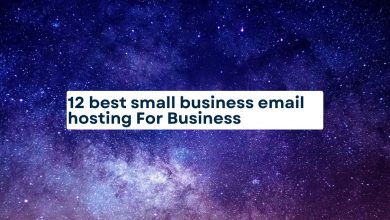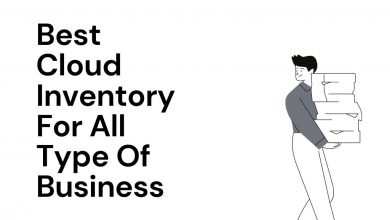B2B Marketplace Platforms Comparison

Global commercial and financial vistas have been changed by e-commerce. The fast advancement of digital technology is the primary driving force behind this. Customers’ expectations are evolving, and competition is fiercer than it has ever been. B2B marketplaces were created to meet these demands.
What Is A B2B Marketplace?
Business-to-business organizations (B2B) are supporting operations that supply other businesses with the resources they need to function and expand. Payroll processors and industrial suppliers are only two examples of this type of service. It’s a stark contrast to B2C (business-to-consumer) and C2B (consumer-to-business) strategies, which sell directly to customers and offer services to businesses (such as customer reviews or influencer marketing). Unlike B2C organizations, B2B enterprises focus solely on the needs of other businesses. They provide raw materials, completed products, services, or consultations that help other businesses run, expand, and prosper.
Examples Of B2B Marketplace
It doesn’t matter what sector you’re in; there are B2B enterprises in it. There are a plethora of B2B vendors and advice businesses operating in every industry. This means that every B2C firm produces B2B activity because of the goods, services, and expert advice it needs.
Car manufacturing is an example of a classic B2B market. There are a few household names that are well-known to the general public, but with every vehicle or truck they build, there are hundreds of items from other firms. This includes things like tires, hoses, batteries, and electronics, all of which are crucial to making a car work. Products from multiple vendors are purchased by the producer, which combines them into the final product. In order to buy an automobile from a single manufacturer, you’re acquiring the products of many other manufacturers throughout the world. All industries rely heavily on business-to-business sales as part of their supply chain.
There are more examples of B2B activities in the real world than you may think. Credit card processing companies, for example, have their whole business model built on enabling businesses to accept card payments. Aside from producing consumer items, General Electric also offers parts to other businesses. ADP, a corporation that offers payroll and banking services for businesses, may have stamped your paychecks when you worked there. In the paper and printing industry, Xerox is a household name that generates billions of dollars each year.
Business To Business B2B Wholesale Marketplaces
Small-to-medium-sized enterprises are finding new avenues for growth through wholesale marketplaces that are expanding at an astronomical rate. The way B2B agreements are made and what it means to be B2B are changing as a result of these internet technologies.
They are the driving force behind many industries’ fast expansion. Here are a few interesting stats to look at.
- 50% of worldwide internet purchases are made through markets. Only 6% of B2B purchasers are still not using B2B marketplaces
- In the next five years, 75% of B2B procurement spending will be conducted online.
Read More: SportSurge Best Alternatives
Lower Total Cost Of Ownership And Get To Market Faster
When compared to competing for eCommerce platforms, OroCommerce offers cheaper costs of ownership and a faster time to market for businesses that want to launch their business online. B2B capabilities like maintaining various price lists and customizing product catalogs are available out-of-the-box, resulting in fewer development hours and shorter completion deadlines because of the reduced complexity of the projects.
It’s also possible to get answers to commonly asked questions and expansions from our dynamic community.
Basic Types Of B2B eMarketplaces
There are three main types of eMarketplaces, each with its own set of services and organizational structure.
-
Supplier-Oriented Marketplace
Known as e-distribution, this model has a large number of buyers and a small number of providers. Suppliers can either manage it as a single firm or a collection of businesses, and it is owned by them. Goodwill and long-term client relationships may be built with it. More than $1 billion worth of networking products are sold by Cisco each year. You can use this to locate wholesale products, but it’s not a good approach to learn about locating merchants.
-
Buyer-Oriented Marketplace
It is also known as e-procurement, and there are few customers and many vendors. In this approach, the buyer controls the website, and sellers can advertise their items at varying prices. Only large-scale purchasers are the focus of these bidding platforms. TPN Post, GE’s electronic auction platform, is one of the largest markets for buyers.
-
Intermediary-Oriented Marketplace
Known as an e-exchange, this rapidly expanding marketplace comprises a large number of buyers and sellers. In exchange for a nominal charge, a third party links buyers and vendors. Small and medium-sized enterprises will find it suitable. There are hundreds of wholesale food vendors and customers that can connect with BlueCart.
Read More: Anime Haven Best Alternatives Sites
For A B2B organization, How Do You Come Up With A Marketing Strategy?
Marketing and branding B2B products or services necessitates a distinct strategy. For B2B firms, the target audience is not a customer at all, but rather another business. Marketing to business decision-makers implies that B2B marketers need to provide an engaging direct marketing experience. Selling requires a thorough grasp of another company’s operations, the building of trust between the two companies, and a business-specific plan for converting leads into clients.. B2B marketing initiatives must be carefully planned, according to Brent Walker, PatientBond’s senior director of marketing and Analytics.
When it comes to customer-client connections, “B2B often relies on its sales function and accounts management staff,” he noted. “Trade magazines, conventions, trade conferences, and digital marketing (such as a website, SEO, and email outreach) are all examples of conventional methods of raising awareness.”
When communicating with other organizations, here are some things you should keep in mind to boost your B2B marketing campaigns:
- When you have a well-trained sales staff, you may create strong partnerships.
- This audience isn’t the usual customer, thus your message should be tailored to their degree of interest.
- The focus of B2B marketing communication should be on creating connections, rather than spreading your brand’s voice through social media channels.
- Other companies are interested in learning about the return on investment (ROI) that your product may provide.
Comparison Of B2B Marketplace Platforms
-
Alibaba
The closeness of this B2B marketplace to China’s manufacturing heartland is its greatest benefit. When this site was founded in 1999, it was already the world’s largest B2B marketplace platform. In the beginning, it had a workforce of just 18 individuals, but it has now expanded to about 22,000 workers.
China’s wholesalers and the rest of the globe are its primary focus. More than 80 million people have signed up for the service so far. Electronics and apparel are among the site’s best-selling goods.
The success of Alibaba may be attributed to a variety of things. It has also leveled the playing field between large and small businesses. The combined profits of the lesser players are mind-boggling. Second, there is no fee to enter the site. It charges a fee for the use of its customer service department. Sellers of various sizes are drawn to this opportunity, as is the case with the number of purchasers.
-
Amazon Business
On the list of the world’s greatest online B2B marketplaces, Amazon business is also featured In other words, it’s a major danger to any other models out there. It has continued to expand at a rate of 20% per month. A total of $1 billion was made in sales last year, and that figure is predicted to climb to $8 billion in 2017. Over 9 million goods are currently listed on the marketplace.
One of the secrets to Amazon’s success is that the company has spent much on SEO. As a result, items from this portal appear at the top of the results page for the majority of product queries. Sellers come to the platform because it provides guaranteed exposure. Sellers do not need to have a website in order to sell on the platform. As a result, traders are free to focus on other aspects of their business while also reducing the inherent risk.
Confidence in retailers is sparked by the portal’s success. Trading on the platform is enticing to those who study its growth patterns since it ensures success. Compared to other platforms, there isn’t much competition.
-
Global Sources
Established in 2000, this business-to-business platform is still going strong. Their headquarters are in Singapore, although their primary market is China. When it went public on NASDAQ, it was the first B2B platform to do so. A strong link to Hong Kong’s international trade fairs is evident. The vast majority of its members are, therefore, firms doing business with nations in the West that are located on the island. This platform is unique in that it employs a rigorous verification procedure for all of its vendors. The cost of this service must be paid even if the conclusion is uncertain. As a consequence, a select group of top-tier vendors has been narrowed down. As a result, traders who use the platform are able to do business with just the finest of the best. The portal’s trade expo, held every two years, adds to its allure. This allows users the chance to communicate with one other on a more intimate level. The seamless combination of the internet front and the physical exhibition draws a large number of import/export businesses. For this purpose, it holds regular meetings for each of its buyer groups.
These features contribute to the model’s credibility. As a result of its personal touch and outreach efforts, it stands apart from the rest of the pack. Suppliers like the uniqueness as well.
-
Trade India
This site is widely considered to be India’s most important B2B marketplace. 4 million people have signed up for the service since it was founded in 1996. An internet company directory for foreign traders is only one of the many services it provides. Attending trade exhibits and promotional events is also a component of their strategy. It all began with a firm that printed exporter’s yellow pages, founded by the founder. As time went on, he decided to embrace the digital revolution and take his interest to the next level.
SMEs, large corporations, and even sole proprietors are all included in its clientele. Its main asset has been its online business directory. An international directory of manufacturers and suppliers is included in the design of the yellow page. As a result of this feature, international trading is made much easier.
-
DHgate
Small international merchants are the center of this site. Using this method, they may acquire modest quantities from Chinese producers. Sporting goods, apparel, and electronics are among the company’s many top-selling merchandise categories. With over 30 million goods, it sells in over 220 countries across the world.
According to the site’s stats, it has more than 5 million registered users. Vendor identification is a key problem for such websites, and this one is no exception. On the site, anybody may buy or sell, and it’s hard to tell the legitimate traders from the fraudsters. Security measures have been implemented as a result of this effort. When it comes to authenticated commodities, it employs an authentication method. You may verify the authenticity of a product before you buy it using this feature. Besides this, the site uses escrow services to safeguard its customers’ money.
-
Kinnek
Here, we have one of the newest B2B gamers. It was founded in 2012, and it approaches the topic in a completely new way. And this is what makes it so appealing. It has chosen a unique path by focusing on the consumer and engaging in the purchasing process all the way to the final step..
This model is more than just a matchmaking service. It focuses on corporate procurement. The inspiration for the concept originated from a former consultant’s experience. He was responsible for overseeing large corporations’ purchasing practices. Since most small firms couldn’t afford to hire experts to do this laborious work, he spotted an opportunity here. This procedure, especially for small businesses that deal with technology, is a nightmare.
When contrasted to the majority of people, their procedure operates in the other direction. SMEs list the items they are interested in purchasing on the site. This is when the platform’s algorithms come into play. Once the finest dropshipping suplliers USA have been chosen,their items and give the greatest pricing for consumers to pick from. The advantage of this is that the costs vary greatly depending on where the dealer is located. Most of the time, a trader can receive a bespoke fit from the nearest supplier. Customers are enthused by this new way of doing business.
Read More: Best Alternative Sites Like USTVGO.TV
B2B Marketplace Platforms To Must Use
Start by looking at the big players in the market. This is a new market, thus there aren’t many other businesses in it. For those who plan to run their own eCommerce site, it’s important to choose a marketplace that can do both. Listed below are the top seven players in this market.
-
Oro
For B2B businesses, OroCommerce is one of the few marketplace eCommerce platforms that are specifically designed for their needs. Additionally, you gain the ability to run your own eCommerce website from the same back-end as the marketplace. A B2B2B2B2B, B2C2C, or B2X marketplace is supported by OroMarketplace’s capability. Marketplace operators and merchants have access to a CRM system built within the platform. There is also a sophisticated workflow engine for digitizing procedures available for both suppliers and marketplace administrators to use. Seller administration, monitoring, and onboarding capabilities are all supported by this software. The platform is open source and has a strong and scalable API with third-party system interfaces built-in.
-
Mirakl
The Mirakl approach to market software is unique. B2C and B2B marketplace transactions may be handled using it, but no front end is available. A front-end experience for shoppers is provided instead of using pre-built APIs and connections. Magento Business, SAP Commerce Cloud, and Salesforce Commerce Cloud are all compatible with it. Also included are product administration, product data streamlining capabilities, and operator and seller monitoring capabilities.
-
Izberg
IZBERG is a good place to start if you’re thinking about doing business in the EU. If you’re looking for a back-end-only marketplace platform, Mirakl is a good fit. IZBERG is a B2B and B2C marketplace solution that supports net-term payments, invoicing, and a variety of other B2B-specific payment procedures. Both real and digital goods are available for purchase through this marketplace system.
-
AppDirect
As a marketplace solution provider for individuals who provide digital services, AppDirect is focused. If you’re planning on making actual things, this is not for you. When it comes to providing a comprehensive B2C and B2B marketplace platform for selling digital items and subscriptions on any platform or device, AppDirect knows what it takes. APIs allow it to be integrated with other systems. If you’re a telecoms company, you may use it to sell digital downloads and subscriptions for any digital goods. Goods management and seller onboarding technologies tailored to the digital product sector are provided by AppDirect. Vendors are drawn to the platform because of the usual marketplace platform capabilities like onboarding and reporting that it offers them.
-
Omnyfy
Whatever type of marketplace you have, Omnyfy may be able to help with it. For B2B markets and B2C marketplaces, it also facilitates eCommerce for both businesses (similar to OroMarketplace). Shopify, Shopify & Magento are all supported by the marketplace’s backend integrations. Additional modules for shipping integration, quoting, or processing product or vendor reviews are also available, as is the ability to handle product or vendor ratings and reviews.
-
Spryker
The PaaS marketplace solution from Spryker helps its customers to expand into B2B and B2C eCommerce markets. Even if you don’t have a Spryker webstore, you can still utilize the system. Basic onboarding and product management features are provided by the Spryker marketplace platform, which also offers a headless design for more front-end adaptability. Multiple sellers can offer the same UPC-coded goods at the same time, and it permits bidding and auction-based business structures. Omnichannel commerce may be made simple using the platform.
-
Marketplacer
Marketplacer is an eCommerce platform that can be used for both B2B and B2C marketplaces. Operational hubs and supplier portals are important technological components. For digital products and services, this is supplemented with modules that allow for a different front-end experience. Shopify, Magento, BigCommerce, and WooCommerce can all be integrated using the API.
Note:
Tech3 is a technology platform where you can get the latest updates related to the Tech. Tech3 try to make happy their visitor.



